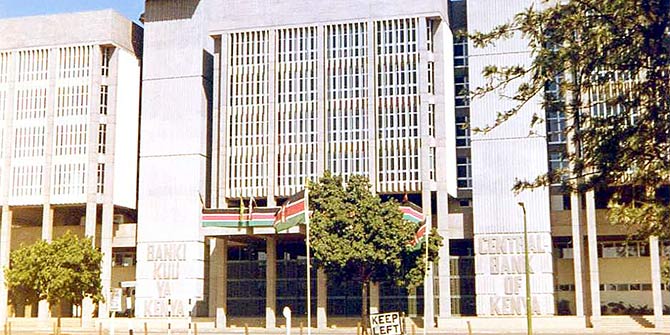LSE alumna, Prajakta Kharkar Nigam, currently posted to Uganda as an Economist on the Overseas Development Institute (UK) Fellowship, examines the challenges and possible solutions to tax avoidance in Uganda.
One of the biggest challenges facing governments is collecting tax revenue, which is a vital source of its income. Therefore, tax evasion – failing to file a tax return and pay taxes when they are due – is illegal. If found guilty, action can be taken against the individual or organisation involved. Ironically, those engaged in tax avoidance – which involves exploiting loopholes in the law to circumvent paying some tax – can escape penalty, as it is not deemed to be against the law.
Uganda presents an intriguing case of tax avoidance. A wide range of experts agrees that the nature of Uganda’s tax system conforms to global benchmarks. The income and corporate tax rates in Uganda are 30% per annum[1] at the highest bracket. However, in the period 2005 to 2011, tax revenues only contributed on average 12% to the GDP[2]. This large gap between the tax paid on the overall earnings in the country and the tax expected[3] to be paid on income-generating activity is worrying. There could be several reasons for this including the inaccurate capture of the service sector by GDP calculations. However, it also highlights the extent of tax evasion and tax avoidance prevalent in this country.
Tax avoidance does not just occur due to those who intentionally elude paying tax. Informal sectors which are not captured by the tax regime as well as ignorance among the masses about tax matters also contribute. To minimise tax avoidance, there are three things the government can do – improve the legal framework to weed out possibilities of tax avoidance, create better incentives for tax payment and promote persuasive and far-reaching awareness regarding tax matters.
Improving the legal framework to weed out possibilities of tax avoidance
The most obvious method of reducing tax avoidance is to tighten the legal framework to slowly weed out opportunities for circumventing taxes. The best people to do so would be the very tax lawyers and consultants who make a living helping firms and individuals to “creatively” minimise their legal tax burden. However, the government will need to provide attractive remuneration packages to lure them to the other side.
Creating better incentives for tax payment
A more creative and constructive approach would be to improve incentives for people to pay their taxes. For example, it would work if the tax regime were re-organised so that there are tax rebates on investments in organisations which finance the government’s developmental work.
A key reason why people do not pay taxes is that they do not see any corresponding significant improvements in public services that directly affect their lives. The urban population does not relate to better roads in rural areas. The rich do not use public infrastructure such as public schools and public transportation as much as the poor do.
Like it or not, the altruistic incentive for paying taxes so that fellow citizens may benefit is limited. Therefore, it is important that new public services and improvements to existing ones cater to all segments of population. It is also critical that such improvements be explicitly communicated to the public through various channels.
In addition, well-meaning citizens can be discouraged from paying their tax burden because of corruption, the scourge which leaks money into a bottomless pit. The taxpayer, seeing money squandered this way, is less-disposed to contribute to this wastage. According to the 2012 East African Bribery Survey 2012, Uganda is top of the list of countries most prone to corruption in the region[4]. The police force and the judiciary have been identified as the most bribery-prone institutions across East Africa.
If taxes were used to improve salaries of the police force and a marked decline in police corruption results, the people of Uganda are likely to notice. Hapless drivers, no longer being stopped without committing a traffic offence, will note this change. It is true that a reduction in petty corruption will not be adequate to stop tax avoidance altogether, I am optimistic that they make the society slightly more civic conscious and more inclined to pay taxes. Without doubt, we cannot expect a significant reversal in tax avoidance unless there is a visible decline in corruption among public officials.
Persuasive and far-reaching awareness regarding tax matters
The key to bridging the gap between expected tax revenue and tax revenue actually collected is increasing the number of people who pay tax. This can be done by trying to engage the large informal economy which exists in Uganda. Very often, the lack of awareness of how taxation works and its potential benefits also contribute to this gap. This can be overcome through persuasive education on tax matters.
In an interview published in the Daily Monitor on 12 June 2012[5], Francis Kamulegeya, the country senior partner at PricewaterhouseCoopers, argued that influential community leaders could play a pivotal role. Cultural and religious leaders would be more effective than politicians and civil servants in engaging the public on the importance of paying taxes for the progress of the country as well as for future generations.
Mr Kamulegeya pointed out that churches in Uganda receive a religious donation amounting to 10% of every devotee’s income without fail. My belief is that this is simply because the church directly benefits the person, their family and their religious fraternity. If the local government were to request the assistance of the local pastor in pointing out to his church’s audience how paying taxes has enabled the construction of the new road or a new dispensary in their locality, it is likely that this community would be willing to listen to their trusted source (the pastor) and act upon the advice.
In conclusion, developing countries may face similar tax issues to the developed world. The underlying reasons, however, are very different as are the solutions. Tax evasion is indeed a serious issue that cannot be ignored. In Uganda’s case, equally important is the task of reducing tax avoidance. It is often practised by well-meaning citizens who are disillusioned or distrustful of public effectiveness, or by some who are not included in the formal economy or others who are simply misinformed about the taxation system and its potential long-term benefits. These are problems, which seem easier to solve than tax evasion but doing so needs better understanding of the local context and more creativity than the hard hand of the law.







1 Comments